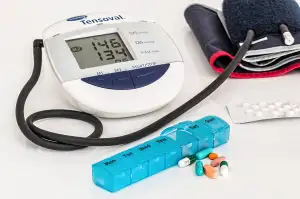Revitalize Your Health with a Juice Diet: The Ultimate Guide to Rejuvenation

The juice diet, also known as juicing or juice fasting, has gained popularity in recent years as a way to revitalize and rejuvenate the body. It involves consuming only fresh fruit and vegetable juices for a certain period of time, typically ranging from a few days to several weeks. This article will guide you through the ins and outs of the juice diet, exploring its benefits, types of juices, how to start, tips for success, potential risks, and commonly asked questions. So get ready to embark on a journey towards better health and vitality with the ultimate guide to rejuvenation through a juice diet.
Benefits of Juice Diet for Health
The benefits of a juice diet for health are numerous. Firstly, juices are packed with essential vitamins and minerals that nourish the body and boost the immune system. They provide a concentrated dose of nutrients in an easily digestible form, allowing the body to absorb them quickly. Additionally, juicing helps to detoxify the body by flushing out toxins and promoting healthy liver function. It can also aid in weight loss as juices are low in calories but high in nutrients, keeping you feeling full and satisfied. Moreover, a juice diet can improve digestion, increase energy levels, promote clear skin, and enhance overall well-being.
Types of Juices for a Juice Diet
When it comes to a juice diet, the options are endless. There are various types of juices that you can incorporate into your diet to reap the maximum benefits. Here are some popular choices:
1. Green Juices: Packed with leafy greens like spinach, kale, and parsley, green juices are rich in vitamins, minerals, and antioxidants. They help detoxify the body and boost immunity.
2. Citrus Juices: Orange, grapefruit, lemon, and lime juices are not only refreshing but also high in vitamin C. They promote healthy skin, aid digestion, and strengthen the immune system.
3. Beetroot Juice: This vibrant red juice is known for its detoxifying properties and ability to improve blood circulation. It also supports liver health and boosts energy levels.
4. Carrot Juice: Carrots are loaded with beta-carotene, which converts into vitamin A in the body. Carrot juice promotes healthy vision, improves skin health, and enhances immunity.
5. Watermelon Juice: Perfect for hot summer days, watermelon juice is hydrating and packed with antioxidants like lycopene. It helps reduce inflammation and supports cardiovascular health.
6. Pineapple Juice: Pineapple juice contains bromelain, an enzyme that aids digestion and reduces inflammation. It also provides a good dose of vitamin C and manganese.
Remember to experiment with different combinations of fruits and vegetables to find your favorite flavors. Be sure to use fresh produce or invest in a good quality juicer for optimal results on your juice diet journey!
How to Start a Juice Diet
1. Set your goals: Determine what you want to achieve with your juice diet. Whether it's weight loss, detoxification, or simply improving your overall health, having clear goals will keep you motivated.
2. Choose the right juicer: Invest in a good quality juicer that can extract maximum nutrients from fruits and vegetables. Cold-pressed juicers are highly recommended as they preserve enzymes and vitamins better than centrifugal juicers.
3. Plan your menu: Research different juice recipes and create a menu for each day of your juice diet. Include a variety of fruits, vegetables, and herbs to ensure you get a wide range of nutrients.
4. Stock up on fresh produce: Purchase organic fruits and vegetables to avoid pesticides and chemicals. Buy enough produce to last throughout your juice diet period.
5. Prepare in advance: Wash, peel, and chop your fruits and vegetables in advance to save time during the diet. Store them properly in airtight containers or bags to maintain freshness.
6. Start gradually: Ease into the juice diet by replacing one meal with a juice initially. As your body adjusts, gradually increase the number of meals replaced with juices until you're on a full juice diet.
7. Stay hydrated: Apart from juices, drink plenty of water throughout the day to stay hydrated and aid digestion.
8. Listen to your body: Pay attention to how your body responds to the juice diet. If you feel weak or experience any adverse effects, consult a healthcare professional immediately.
9. Monitor progress: Keep track of changes in your energy levels, weight loss, skin improvements, and overall well-being during the juice diet period.
10. Gradual transition out of the diet: When ending the juice diet, slowly reintroduce solid foods back into your daily routine by incorporating light meals like salads or soups before resuming regular eating habits.
Starting a juice diet requires commitment and discipline. By following these steps, you'll be well on your way to a successful and rejuvenating juice diet experience.
Tips for a Successful Juice Diet
1. Start slow: Ease into the juice diet by gradually replacing one meal with a juice. This will help your body adjust to the change and prevent any sudden cravings.
2. Choose fresh, organic produce: Opt for fruits and vegetables that are pesticide-free and preferably locally sourced. This ensures that you're getting the maximum nutritional benefits from your juices.
3. Mix it up: Don't stick to just one type of juice. Experiment with different combinations of fruits and vegetables to keep things interesting and to ensure you're getting a variety of nutrients.
4. Stay hydrated: In addition to consuming juices, it's important to drink plenty of water throughout the day. This helps flush out toxins from your body and keeps you hydrated.
5. Listen to your body: Pay attention to how your body responds to the juice diet. If you feel weak or lightheaded, it may be a sign that you need more calories or nutrients. Adjust your juice recipes accordingly.
6. Incorporate exercise: While on a juice diet, it's important to engage in light exercise such as yoga or walking. This helps boost circulation and aids in detoxification.
7. Plan ahead: Prepare your juices in advance so that they are readily available when hunger strikes. This will help you stay on track and avoid reaching for unhealthy snacks.
8. Seek support: Join online communities or find a buddy who is also following a juice diet. Having someone to share experiences, recipes, and challenges with can greatly increase your chances of success.
Remember, a successful juice diet requires commitment and discipline. By following these tips, you'll be well on your way to rejuvenating your health through this transformative lifestyle change.
Potential Risks and Precautions of Juice Diet
While a juice diet can offer numerous health benefits, it's important to be aware of potential risks and take necessary precautions. Here are some key points to consider:
1. Nutrient deficiencies: Since juices primarily consist of fruits and vegetables, they may lack certain essential nutrients like protein, healthy fats, and fiber. It is crucial to ensure a balanced intake of nutrients through supplementation or incorporating other food sources.
2. Blood sugar fluctuations: Juices can have a high sugar content, which can cause rapid spikes in blood sugar levels. This may be problematic for individuals with diabetes or those prone to blood sugar imbalances. Monitoring blood sugar levels regularly is advised.
3. Limited calorie intake: Juice diets often involve significantly reducing calorie intake, which may lead to rapid weight loss initially. However, prolonged low-calorie intake can slow down metabolism and result in muscle loss. Consulting a healthcare professional before starting a juice diet is recommended.
4. Digestive issues: Some individuals may experience digestive discomfort such as bloating, gas, or diarrhea when consuming large quantities of juice due to the high fiber content present in some fruits and vegetables. Gradually increasing juice consumption can help mitigate these issues.
5. Allergies or sensitivities: Certain fruits or vegetables used in juices may cause allergic reactions or sensitivities in some individuals. It's important to identify any known allergies beforehand and avoid those specific ingredients.
6. Medication interactions: Juices containing grapefruit or certain leafy greens can interfere with the absorption and effectiveness of certain medications. Consult with a healthcare professional if you're taking any medications before starting a juice diet.
Remember, moderation is key when embarking on a juice diet journey. It's advisable to consult with a registered dietitian or healthcare professional who can provide personalized guidance based on your individual needs and health conditions.
Frequently Asked Questions about Juice Diet
1. Is a juice diet suitable for everyone?
A juice diet may not be suitable for everyone, especially those with certain medical conditions or on specific medications. It is always best to consult with a healthcare professional before starting any new diet.
2. Can I consume solid food while on a juice diet?
While it is recommended to primarily consume juices during a juice diet, some plans may allow for the inclusion of small amounts of solid foods like fruits and vegetables. However, it is important to follow the guidelines provided by your chosen juice diet plan.
3. Will I lose weight on a juice diet?
Many people experience weight loss while on a juice diet due to the low calorie intake. However, individual results may vary depending on factors such as metabolism and activity level.
4. Can I exercise while on a juice diet?
Light exercise such as walking or yoga is generally safe during a juice diet. However, intense workouts may not be advisable due to the reduced calorie intake. Listen to your body and adjust your exercise routine accordingly.
5. How long should I do a juice diet for?
The duration of a juice diet varies depending on individual goals and preferences. Some people choose to do a short-term cleanse for 3-7 days, while others incorporate juices into their daily routine long-term.
6. Can I drink store-bought juices instead of making my own?
While store-bought juices can be convenient, they often contain added sugars and preservatives which may hinder the benefits of a juice diet. It is best to make your own fresh juices using organic fruits and vegetables whenever possible.
Remember, it's always important to listen to your body and consult with professionals if you have any concerns or questions about embarking on a juice diet journey.
In conclusion, embracing a juice diet can be a transformative step towards a healthier lifestyle. The benefits of incorporating fresh juices into your daily routine are immense, from increased energy levels to improved digestion and glowing skin. By nourishing your body with nutrient-rich fruits and vegetables, you are providing it with the essential vitamins and minerals it needs to thrive. However, it is important to approach a juice diet with caution and ensure that you are still getting all the necessary nutrients from other food sources. Remember to consult with a healthcare professional before starting any new diet or making significant changes to your eating habits. With proper planning and moderation, a juice diet can be an effective tool for rejuvenation and revitalization. So why not give it a try and experience the amazing benefits for yourself? Cheers to a healthier you!
Published: 12. 01. 2024
Category: Health



